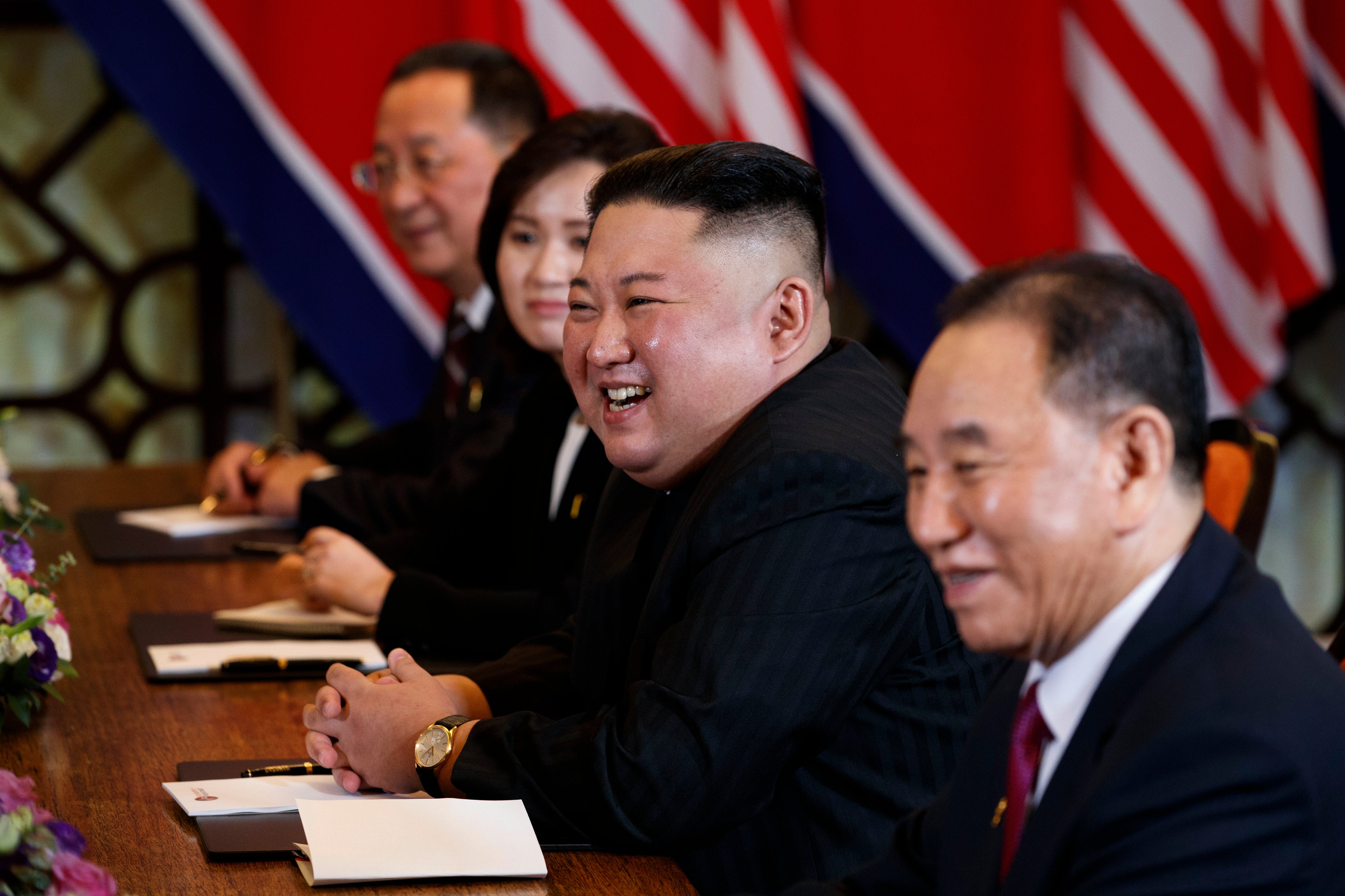N Korea repeats threat as US says joint drills are defensive
North Korea has repeated a threat to respond to U.S.-South Korean military exercises it claims are an invasion rehearsal, while the United States insisted the drills were “purely defensive in nature” to maintain the South’s security

Your support helps us to tell the story
From reproductive rights to climate change to Big Tech, The Independent is on the ground when the story is developing. Whether it's investigating the financials of Elon Musk's pro-Trump PAC or producing our latest documentary, 'The A Word', which shines a light on the American women fighting for reproductive rights, we know how important it is to parse out the facts from the messaging.
At such a critical moment in US history, we need reporters on the ground. Your donation allows us to keep sending journalists to speak to both sides of the story.
The Independent is trusted by Americans across the entire political spectrum. And unlike many other quality news outlets, we choose not to lock Americans out of our reporting and analysis with paywalls. We believe quality journalism should be available to everyone, paid for by those who can afford it.
Your support makes all the difference.North Korea on Wednesday repeated a threat to respond to U.S.-South Korean military exercises it claims are an invasion rehearsal, while the United States insisted the drills were “purely defensive in nature” to maintain the South’s security.
In a statement released by state media on Wednesday, senior North Korean official Kim Yong Chol condemned South Korea for continuing the allied drills and warned of unspecified counteractions that would make Seoul “realize by the minute” that it had walked into a security crisis.
A day earlier, Kim Yo Jong, the powerful sister of North Korea's leader, said the drills were the “most vivid expression of the U.S. hostile policy” toward North Korea and said the North will work faster to strengthen its preemptive strike capabilities.
The allies have not confirmed when the drills will take place or other details, but local media have reported preliminary training was underway this week to set up larger computer-simulated drills on Aug. 16-26.
Talking to reporters in Washington State Department spokesperson Ned Price stressed that the drills were “purely defensive in nature.
“Second, as we have long maintained, the United States harbors no hostile intent toward the DPRK,” Price said, using the initials of the country’s formal name, the Democratic People’s Republic of Korea.
“We support inter-Korean dialogue, we support inter-Korean engagement and will continue to work with our (South Korean) partners toward that end.”
North Korea has a history of dialing up pressure on the South when it doesn’t get what it wants from the United States. Analysts say the North has been trying to exploit South Korea’s desperation for inter-Korean engagement, pressuring Seoul to drop the allied military drills and extract concessions from Washington on its behalf while the larger nuclear diplomacy remains stalemated.
North Korea ended a yearlong pause in ballistic tests in March by firing two short-range missiles into the sea, continuing a tradition of testing new U.S. administrations with weapons demonstrations. But there haven’t been any known test launches since then as leader Kim Jong Un focused national efforts on fending off the coronavirus and salvaging a broken economy damaged further by pandemic border closures.
North Korea’s threat that it may respond to the U.S.-South Korean drills with counteractions and advances of its preemptive strike capability may signal a resumption of its weapons testing activities.
Hours after Kim Yo Jong’s statement was released on Tuesday, South Korea’s defense and unification ministries said North Korean officials didn’t respond to their afternoon calls over inter-Korean communication channels. The hotlines had been disconnected for a year before the North agreed to reopen them in late July in what the Koreas then described as a conciliatory gesture.
In Wednesday’s comments, Kim Yong Chol, who heads the North’s United Front Department that handles affairs with the South, said South Korea blew its opportunity for better ties by opting for “alliance with outsiders, not harmony with compatriots, escalation of tension, not detente, and confrontation, not improved relations.”
“We will make them realize by the minute what a dangerous choice they made and what a serious security crisis they will face because of their wrong choice,” he said.
North Korea has long bristled at joint military exercises between South Korea and the United States, which the allies insist are routine and defensive in nature. The North often responds to them with its own weapons tests.
The allies in the past few years have canceled or downsized some of their joint training to provide space for diplomacy or because of the COVID-19 pandemic.
The United States keeps about 28,000 troops in South Korea to help deter potential aggression from North Korea, in a legacy of the 1950-53 Korean War.
North Korea has suspended its nuclear and long-range missile tests since 2018, when leader Kim Jong Un initiated diplomacy with South Korea and then-President Donald Trump while attempting to leverage his nuclear weapons for badly needed sanctions relief.
After the talks fell through in 2019 over disagreements in exchanging the release of sanctions and North Korea’s denuclearization steps, the North ramped up tests of new short-range, solid-fuel weapons to improve its ability to deliver nuclear strikes and overwhelm missile defense systems in South Korea and Japan.